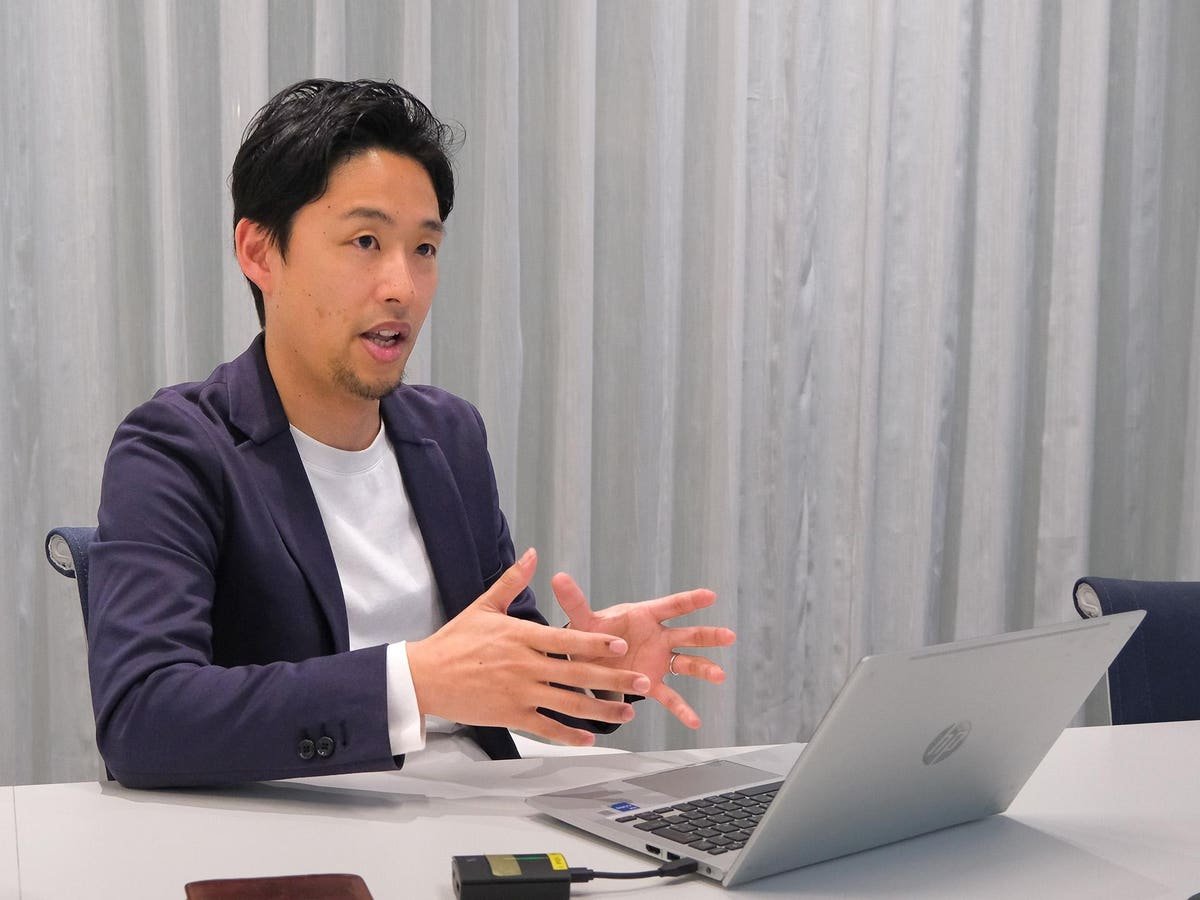Hotels & Accommodations
Blackpool hotel reptile market plan in animal rights row

A row has broken out over plans to host a reptile market at a Blackpool hotel this summer.
The event at the Norbreck Castle will see people “buy and sell their surplus animals and offspring”, according to the International Herpetological Society (IHS).
But some animal charities have condemned the market as a “gross violation” of reptile welfare and have urged Britannia Hotels to cancel it.
Blackpool Council said its officers would be at the event to make sure it complied with standards, while the IHS said its markets were “fully compliant with UK law”.
The IHS, which was founded in 1969, said it was “committed to the ongoing research and propagation of all reptile, amphibian and chelonian species”.
It added “animal care is paramount” at its events and creatures were “transported and displayed in temporary containers for the animals’ safety during the event only”.
The soceity added that two veterinary professionals were “always present and any concerns are taken extremely seriously”.
Plans for a similar market in Doncaster in 2022 were halted by the town’s council after complaints from some animal charities.
Event controversy
Elaine Toland, director of the Animal Protection Agency, said it “strongly urges Britannia Hotels to cancel this event and refuse to be complicit”.
Laura Walton, campaigns manager at Freedom for Animals, added it “sincerely hoped” the hotel chose not to let the event go ahead.
Charlotte Regan, wildlife campaigns manager at World Animal Protection, said the animals were “not products to be bought and sold at makeshift stalls”.
“These kinds of events are outdated and have no place in modern society.”
The IHS said it found it “deeply upsetting to be constantly under fire” and none of its previous events had been “cancelled, refused or changed venues due to welfare issues or legal contravention by the IHS”.
It said the events had instead been called off because of “adverse publicity”.
Britannia Hotels has been approached for comment.
Hotels & Accommodations
KOKO HOTEL and VALUE THE HOTEL Launch New Web Point Program

KOKO HOTEL and VALUE THE HOTEL have launched a new web point program starting July 1st.
The KOKO HOTELS “Web Point Program” offers a 10% discount on reservations made through the official website when members log in, on top of earning 3% of the usage amount (excluding tax) in points. Accumulated points can be used not only at KOKO HOTELS but also at group hotels such as HOTEL WING and TENZA HOTEL. Points can be redeemed at a rate of 1 point per yen when booking through the official website. Additionally, there are benefits such as a cash-back offer of 10,000 yen when 8,000 points are accumulated.
To commemorate the start of the new point program, a 10,000-point giveaway campaign will be conducted from July 1st to September 30th. 55 participants who register as members on the official website and make reservations and stay during the promotion period will be selected by lottery to receive 10,000 points.
Hotels & Accommodations
How Tokyo Is Becoming Sustainable

Tsubasa Yokote, representative director of Blueground Japan, in his Tokyo office.
Aren Elliott
In a wood-paneled boardroom with a commanding view of Tokyo’s Imperial Palace, Tsubasa Yokote is trying to explain the city’s approach to sustainable tourism. It’s not easy.
Yokote, representative director of Blueground Japan, says sustainability — best exemplified by the concept of mottainai, which emphasizes avoiding waste — has been part of Japanese society for centuries. Many of the tourism industry’s recent efforts to become more sustainable are a direct result of that cultural practice rather than a new movement spurred by climate change or politics.
You can see it in Blueground’s rental apartments. It’s in the recycling stations in the basements, which are standard in most Tokyo apartments. And it’s also in the efficiency features that allow you to regulate energy consumption in your home.
“All these features are beneficial for the environment,” he explains.
Blueground Japan, a collaboration with real estate developer Mitsubishi Estate, is a case study in mottainai. Each new apartment is designed with sustainability on several levels — not just in terms of saving energy but also of creating a sustainable business. The medium- and long-term housing market for furnished rentals is still developing, so when Yokote talks about sustainability, he is also talking about Blueground’s sustainability.
“Tokyo is upholding its high standard of sustainability, from its world-famous public transit system to dauntingly strict garbage sorting rules,” says Evelyn Gong, who teaches operations management at Carnegie Mellon University’s Tepper School of Business. She says the city is moving steadily towards its goal of achieving net zero emission by 2050, and its 2030 midway targets such as heightened renewable energy use and halved food waste.
The living room in a Blueground rental in Tokyo.
Blueground
How Tokyo’s tourism industry embraces mottainai
While Blueground Japan exemplifies sustainable urban living, Tokyo’s broader travel sector is weaving traditional mottainai values into innovative eco-practices. Here are a few examples of how hotels, restaurants, and cultural experiences are leading the charge:
Palace Hotel Tokyo’s circular economy
The hotel’s Eco-Palace initiative turns kitchen waste into fertilizer for local farms. The hotel then buys the resulting crops of rice and produce for incorporation into the staff canteen’s daily menu.
Kintsugi: The art of sustainable beauty
Many Tokyo luxury hotels, including the Palace, offer kintsugi workshops, where guests repair broken pottery with gold — a centuries-old practice that embodies mottainai. Couture designer Kevan Hall, inspired by a Tokyo workshop, noted, “It’s a poetic way to transform flaws into heritage.”
Carbon-neutral hotel stays
The Tokyo Station Hotel offsets 100 percent of guest stay emissions, while the Imperial Hotel Tokyo replaced plastic amenities with bamboo and wood. Both properties use CO₂-free electricity and hold top certificates in sustainable development.
Zero-waste dining
The Michelin-starred Daigo restaurant practices shojin-ryori, a Buddhist culinary tradition that minimizes waste. Chef Yusuke Nomura crafts plant-forward kaiseki menus using local ingredients, thereby reducing methane emissions.
Rebuilding communities
Walk Japan, a tour operator, partners with rural towns in places like earthquake-hit Noto Peninsula, where travelers help rebuild homes and revive abandoned rice paddies. Their tours funnel revenue into local economies, which are trying to counter population decline.
Eco-conscious lodging
Boutique projects like Nipponia Sawara repurpose historical warehouses into hotels using local materials. At Mt. Fuji’s Ecologic, guests join workshops and bike tours supporting nearby farms.
Sustainability as a lifestyle in Tokyo
One of the best ways of experiencing Tokyo’s sustainability is by living it. Blueground, which offers furnished apartment rentals in the city, is tapping into a new market of digital nomads and people who are relocating to Japan.
Yokote says Blueground’s apartments come with multilingual support to help customers make sense of Japan’s mottainai practices.
For many visitors, understanding sustainability in Tokyo means more than admiring eco-initiatives from afar — it means stepping into the rhythms of daily life. But Japan’s rental housing market often presents hurdles for non-Japanese residents, from stringent lease terms and language barriers to cultural nuances around waste management and energy use. Blueground’s furnished apartments aim to bridge this gap, says Yokote.
“That means access to housing designed with Japanese values — like minimalism and energy efficiency — while providing the tools to navigate systems that might otherwise feel inaccessible,” he says.
By embedding sustainability into the fabric of everyday living, Blueground’s apartments become gateways to Japan’s eco-conscious ethos. Guests learn to separate trash not as a performative act, but as a reflection of mottainai’s enduring influence. They interact with systems like energy-efficient appliances and water-saving fixtures, which are standard in Japanese homes but often unfamiliar to outsiders.
“When you live here, you start to see how sustainability isn’t a trend. It’s a mindset passed down through generations, and now it’s something visitors can truly inhabit,” says Yokote.
In Tokyo, looking to the past to create a sustainable future
Tokyo’s journey toward sustainability is not a race to reinvent itself, as it is in other tourism destinations. At its core lies mottainai, a philosophy that has long whispered the value of resourcefulness.
From Blueground Japan’s energy-efficient apartments, where global nomads navigate energy-saving systems and strict recycling protocols, to the Palace Hotel Tokyo’s closed-loop kitchens and the golden scars of kintsugi workshops, the city is trying to prove that sustainability thrives when it’s rooted in heritage.
These efforts are neither performative nor peripheral. They are pragmatic evolutions of tradition: Michelin-starred chefs reviving Buddhist culinary ethics to cut food waste, hotels offsetting emissions while preserving the elegance of a bygone era, and rural tours that transform travelers into stewards of revival. Even the challenges — deciphering trash-sorting rules or mastering apartment energy systems — underscore a deeper truth: Sustainability demands both systemic rigor and individual adaptation.
“We’re not just saving energy,” Yokote says. “We’re building a sustainable bridge.”
But Tokyo’s greatest lesson may be its quiet demonstration that the future of sustainability lies not in discarding the past, but maintaining and refining it — one repurposed warehouse, revived rice paddy, and thoughtfully sorted trash bag at a time. In a world grappling with climate urgency, that may be a lesson for other tourism destinations.
Hotels & Accommodations
“Only ate at 5-star hotels, still got 4 types of Salmonella”: American influencer explains why he fell sick in India, internet reacts

But not everyone’s convinced. And the internet is on fire.
‘White Tourists Come Here to Slum It’, An Indian Woman’s Video Started It All
It all began when an Indian woman posted a now-viral video slamming white travellers for “romanticising poverty” in India. She accused them of living in worse conditions than the country’s poor, just to go back and call India “pathetic.”
The YouTuber fired back with a post on X (formerly Twitter), saying he wasn’t “slumming it.” He was staying in 5-star hotels and still ended up catching four strains of Salmonella. “Only ate in 5-star hotels and still contracted 4 types of Salmonella,” he wrote. The reason? According to him, the hotel likely sourced eggs from a chicken farm next to a literal mountain of trash.
“Not Racist to Talk About Hygiene”
Tyler insisted that criticising India’s sanitation issues isn’t racism, it’s reality. “There are serious hygiene issues that must be addressed in India. It is NOT racist to address the poor quality of life most Indians are subjected to while the upper caste insulates themselves from reality,” he posted.
To back up his claims, he even attached medical reports proving his illness. But that didn’t stop the flood of angry comments calling him out for “defaming India.”
The $100-a-Night Argument
When people accused him of travelling on a budget, Tyler clarified: “The 5-star hotels were about $100 a night. It was budget travel relative to American standards.” He even took a dig at India’s wealth gap: “Ambani has a billion-dollar tower overlooking the slums. Your anger is misplaced,” he said.The internet remains divided. Some Indians echoed his concerns, saying it’s time India stops being defensive and starts fixing real problems. Others slammed him for reducing an entire country to a bad stomach bug.
Inputs from agencies
-

 Brand Stories6 days ago
Brand Stories6 days agoBloom Hotels: A Modern Vision of Hospitality Redefining Travel
-

 Brand Stories1 day ago
Brand Stories1 day agoCheQin.ai sets a new standard for hotel booking with its AI capabilities: empowering travellers to bargain, choose the best, and book with clarity.
-

 Destinations & Things To Do7 days ago
Destinations & Things To Do7 days agoUntouched Destinations: Stunning Hidden Gems You Must Visit
-

 AI in Travel7 days ago
AI in Travel7 days agoAI Travel Revolution: Must-Have Guide to the Best Experience
-

 Brand Stories3 weeks ago
Brand Stories3 weeks agoVoice AI Startup ElevenLabs Plans to Add Hubs Around the World
-

 Brand Stories2 weeks ago
Brand Stories2 weeks agoHow Elon Musk’s rogue Grok chatbot became a cautionary AI tale
-

 Destinations & Things To Do1 day ago
Destinations & Things To Do1 day agoThis Hidden Beach in India Glows at Night-But Only in One Secret Season
-

 Asia Travel Pulse3 weeks ago
Asia Travel Pulse3 weeks agoLooking For Adventure In Asia? Here Are 7 Epic Destinations You Need To Experience At Least Once – Zee News
-

 AI in Travel3 weeks ago
AI in Travel3 weeks ago‘Will AI take my job?’ A trip to a Beijing fortune-telling bar to see what lies ahead | China
-

 Brand Stories3 weeks ago
Brand Stories3 weeks agoChatGPT — the last of the great romantics

You must be logged in to post a comment Login